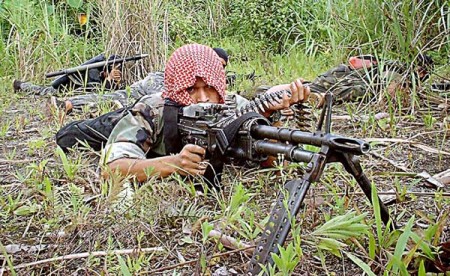
This article was originally published by War on the Rocks on 7 March 2016.
Santa Claus is commonly imagined as a jolly, benevolent figure who delivers presents to deserving children all over the world. However, another version of Santa Claus exists in the organized crime underworld of Belgium where a Moroccan named Khalid Zerkani is commonly known as “Papa Noel.” Before his arrest, Zerkani would routinely handout money and presents to at-risk youth in the Molenbeek neighborhood of Brussels, luring them into his organization. Unlike ordinary organized crime groups that engage in illegal activities for personal enrichment, Zerkani’s group used its criminal proceeds to finance trips of recruits from Europe to join the Islamic State of Iraq and the Levant (ISIL). One notorious recruit of Zerkani’s was Abdelhamid Abaaoud — the ringleader of the Paris terrorist attacks.
The link between crime, radicalism, and ISIL has only recently come into greater focus. Oil smuggling, extortion, and sex trafficking in ISIL-controlled territory are well-known, yet other crimes like drug production, trafficking, and consumption are not. It is important to better understand drug use and the drugs trade because both are helping ISIL commit atrocities and wage its campaign of terror. Viewing ISIL and other jihadist groups as mere collections of drug-crazed fanatics, however, would be a caricature. Organizations like ISIL use drugs for tactical, operational, and strategic reasons that are historically consistent with the behavior of other violent groups in the past. It is worth considering drug consumption within ISIL and other jihadist groups as we consider how to fight them.

